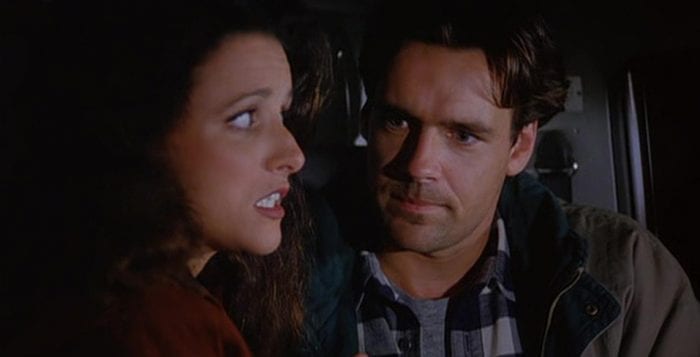D. None of the Above: Imagining ‘Seinfeld’ Characters Bridging the Modern Political Divide
By Daniel Dunaief

I wonder how the creators of the show “Seinfeld,” Larry David and Jerry Seinfeld, would portray today’s world? The answer resides in their approaches to other ideas and conflicts that became the focal point for shows that continue in reruns almost every day.
In one show, Elaine, played by Julia Louis-Dreyfus, is dating furniture mover Carl (David James Elliott). When Elaine finds out that Carl is a pro- lifer, they decide to end their relationship.
In Washington, D.C., and indeed throughout the country, that seems tame compared with the passions people feel when they share their views about the president and about the upcoming election of 2020.
I could imagine an entire modern “Seinfeld” episode dedicated to the efforts people take to avoid discussing politics. Changing the subject, walking out of the room and pretending they can’t hear each other seems like a way these characters might keep the political genie locked in the bottle, allowing them to enjoy the company of anyone and everyone, even if those people disagree with their views on national politics.
We play out that scenario regularly wherever we go, whether we’re looking to date someone or just chat with someone in a line at the deli, on vacation or at the Department of Motor Vehicles.
We are so concerned that we might offend the other person or that he or she might offend us.
When did we become so incapable of speaking with each other? Are we determined to live in echo chambers, where we only listen and speak with the people whose ideas, thoughts and words match our own?
Come on, that’s not how democracy is supposed to work. We can and should be capable of hearing from other Americans whose ideas differ from our own. In addition to the land, the flag, the monuments, the Constitution, the history and so many other facets of American life that we share, we owe it to ourselves and to future generations to be able to listen to each other and to remain open to ideas and opportunities.
Are we afraid that someone who seems rational and reasonable might convince us to change our mind? Are our ideas so fragile and our confidence so weak that we can’t have an informed discussion about our views and our ideas?
Surely, we are better than some homogenized party line. We are a land of rugged individualists, who can and should find a way to advance our local, state and national best interests to give everyone an equal opportunity.
It’s not up to the leaders to tell us what to think, who to be and how to live. We have the chance to make those decisions for ourselves. At their best, those leaders are working to give us a shot at pursuing the American Dream which, last time I checked, doesn’t belong exclusively to one political party or another.
By not talking with each other, we increase the tension that separates the parties and the people who support them. Rather than waiting for a bipartisan detente in Washington, we can and should gather ideas about each other.
If they were still making the show today, the characters from “Seinfeld” might have helped us laugh about how entrenched we have become in dealing with our differences. We, however, aren’t living in a TV show and we owe it to ourselves to gather real information, to listen to other people and to bridge the divide that’s causing the fabric to fray of a country we all call home.
We can learn and grow from making decisions for ourselves, instead of following the same script with every conversation.







